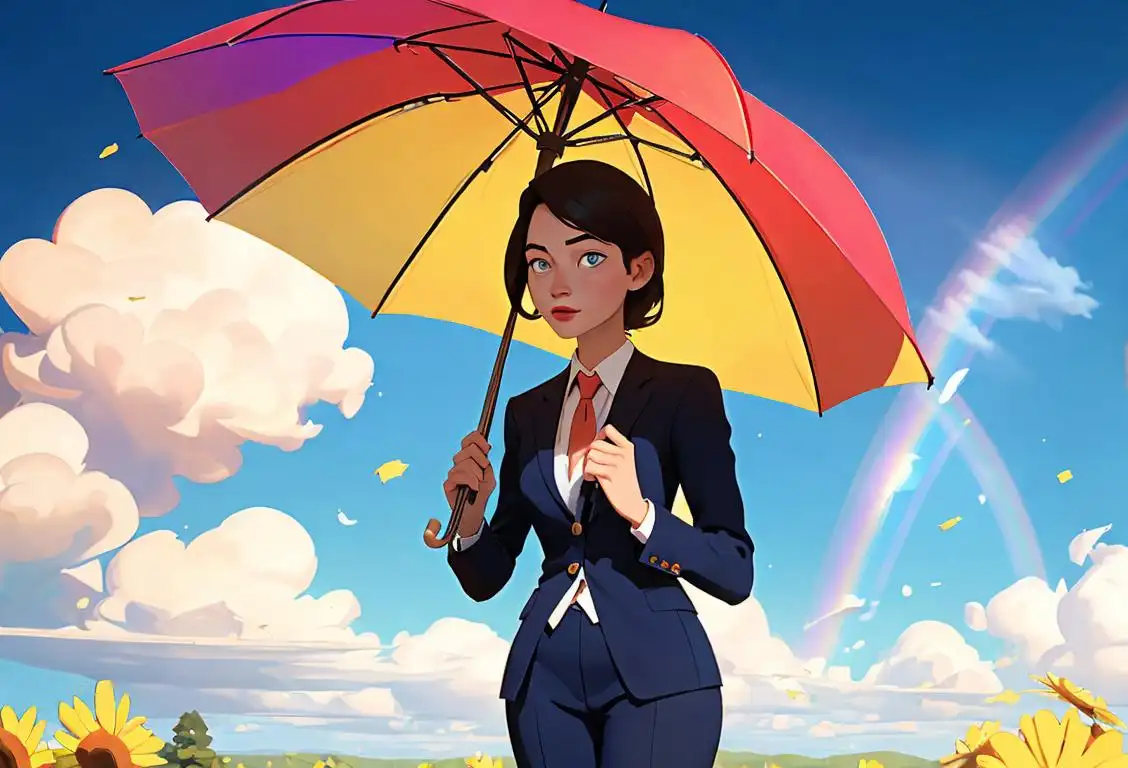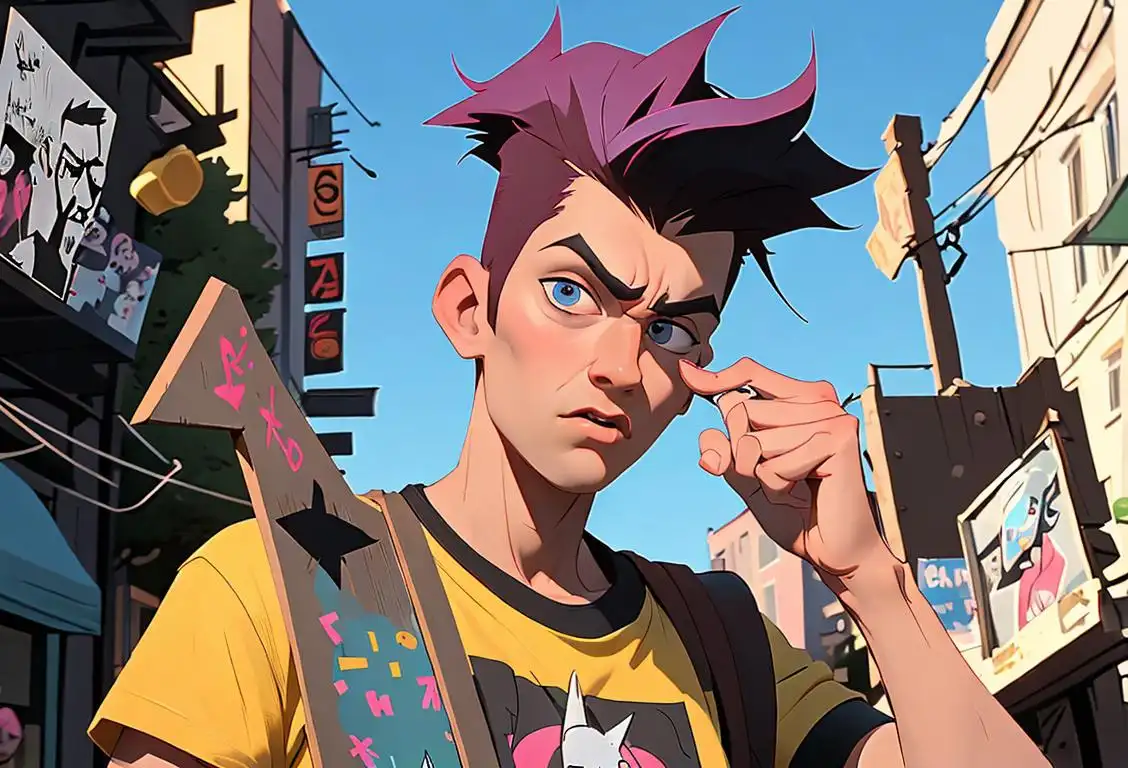National Irony Day

Imagine a day that celebrates the unexpected, the unforeseen, and the all-out ironic twists of life. Welcome to National Irony Day, a day that's as surprising as a sudden rain shower in the middle of a desert. With the unpredictability of the event, even this introduction could potentially be ironic!
When is Irony Day?
It's national irony day on the 12th October.
An Unexpected Celebration
National Irony Day, an unusual day acknowledged by a peculiar bunch, is celebrated with the sort of cheek that'd make even Shakespeare chuckle. The internet erupted with 77 mentions of the day, hitting a crescendo on October 12, 2017. Why? Well, we'd like to think that it was just ironically late, perhaps?
How it's Celebrated
People are often seen sporting 'Ironic' badges, listening to 'Isn't it Ironic' by Alanis Morissette on repeat, by ironically refusing to listen to it; indulging in activities that they wouldn't normally do (all in the name of irony, of course).
Why We Love Irony
We love irony because it adds a dash of wit and fun to our often too-serious lives. Whether it's situational irony, dramatic irony, or verbal irony, each allows us to appreciate the full breadth of life's unpredictable roller-coaster ride. The best part about National Irony Day? Well, it's celebrating the unexpected in the most expected manner!
History behind the term 'Irony'
5th century BCE
Origin of the term
The term 'irony' traces its roots back to ancient Greece, specifically to the 5th century BCE. It is derived from the Greek word 'eironeia,' meaning 'dissimulation' or 'feigned ignorance.' Initially, irony had a different connotation and was associated with a rhetorical technique rather than the concept we understand today.
1st century BCE
Irony as a literary term
During the 1st century BCE, the Roman rhetorician Quintilian defined irony as a figure of speech in his influential work 'Institutio Oratoria.' He described it as a device where the intended meaning of a statement differs from the words used. This marks the beginning of irony's association with literary and rhetorical devices.
18th century
Dramatic irony emerges
In the 18th century, the concept of dramatic irony gained prominence. Dramatic irony occurs when the audience or reader possesses knowledge that the characters on stage or in a narrative are unaware of. This literary technique adds depth and complexity to storytelling, allowing for unexpected twists and ironic situations.
19th century
Irony enters everyday language
During the 19th century, irony started entering everyday language, expanding beyond its primarily literary usage. As society became more aware of contradictions, juxtapositions, and unexpected outcomes, irony became a tool to convey humor, sarcasm, and social critique. It became popular in satirical prints, political cartoons, and witticisms.
20th century
Modern understanding of irony
In the 20th century, irony took on a more nuanced and varied meaning. It became deeply ingrained in popular culture, especially through literature, cinema, and television. The term encompasses verbal irony (saying the opposite of what is meant), situational irony (when events unfold unexpectedly), and dramatic irony (audience knowing more than the characters). The intricate nature of irony continues to captivate artists and audiences alike.
Did you know?
The ultimate irony of National Irony Day is that it is not officially recognized by any calendar organization. Talk about ironic!Tagged
awareness fun unexpected wit surpriseFirst identified
8th April 2017Most mentioned on
12th October 2017Total mentions
77Other days
Irony Day
Surprise Drug Test Day
Rude Day
Former Prisoner Of War Recognition Day
Heroes Day
Memorial Day
Handloom Day
Bestfriends Day
Liberation Day
Dance Day








